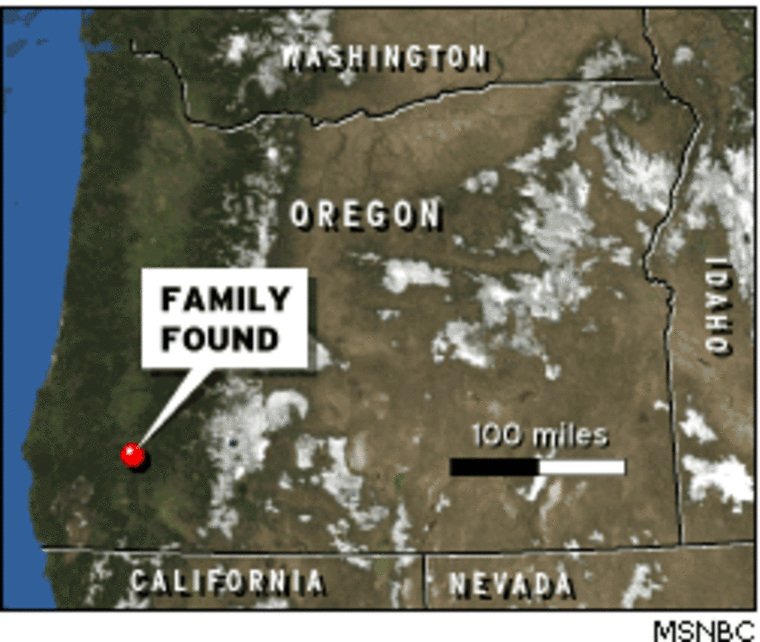When a family of six vanished in the snowy mountains of southern Oregon en route to the coast in a motor home, detectives weighed several theories in their quest to find them — including the possibility that they didn’t want to be found.
The owner of the RV in which the family was traveling, Elbert Higginbotham, is a 54-year-old self-described survivalist who stockpiled rations six years ago for the never-realized Y2K disaster.
With him were his wife, his stepson and the stepson’s wife, and that couple’s two children, 8 and 9. They were rescued Tuesday after spending 17 days stuck in the snow on an isolated, unpaved road too remote for cell phone service.
“They’re nomadic by nature,” Ashland Police Detective Brent Jensen said of the clan. “It could have been that they didn’t want anyone to find them.”
Still, Jensen said the case moved normally for one of its type.
State Rep. Peter Buckley, who represents the area, praised local agencies but said he had tried to “energize” the search in its early stages. He said he thought authorities “did not take it seriously until they had been gone a week.”
Questions, however, arise when a missing persons report is filed, and considerations have to be balanced, Jensen said.
Going missing is not a crime
“It’s not against the law to be missing,” he said. “People say, ‘I haven’t seen Fred for three days,’ but we can’t go knocking down the door. It may be that Fred just doesn’t want to be bugged.”
The family left March 4 on the trip to the coast and weren’t seen again until Tuesday’s rescue. While they were stranded, the six lived largely on dehydrated food.
“We were rationing,” said Higginbotham, who is from Arizona and said he lived many years in the desert with no electricity or running water.
But with food supplies dwindling and a hard freeze on the 4-foot snowpack making walking easier, Peter Stivers, 29, and Marlo Hill-Stivers, 31, on Monday headed out for help.
They had learned from a 5-inch black-and-white TV in the motor home that the official search had been suspended. Gasoline, which supplied electricity and heat, was running low. So was propane for cooking.
Monday in a tent, Tuesday at home
They spent Monday night in a tent. A crew from the Bureau of Land Management found them Tuesday, and rescuers got to the remaining four the same day.
Relatives filed a missing persons report three days after the family was due back.
“They were due back on the fifth,” Jensen said Wednesday. The younger couple didn’t show up for work, and phone calls went to voice mail.

An all-points bulletin was filed March 10 after queries to regional police came up empty, he said.
But being late to return from a trip, he said, does not automatically open an investigation. “Showing up missing from work is not unusual,” he said.
Peter Stivers works for a 7-Eleven, his wife for a video rental store.
“These are not lifelong careers,” Jensen said. “They are minimum-wage jobs. It is not unusual for people to decide they want to take time off.”
No-show on the midnight shift
Renate Cherry, who owns the 7-Eleven, said Stivers had been due for the midnight shift March 5 and knew there was a problem when he didn’t show up.
Higginbotham’s mother, Mary Higginbotham, 76, of Payson, Ariz., said her son bought the motor home two or three months ago after selling some property.
“He came by on Feb. 8, my birthday, and said he was leaving from Oregon,” she said. She followed the search in the news but didn’t hear from him again until Tuesday.
“There were a lot of prayers all over the United States going for him,” she said. “The Lord came through for us.”